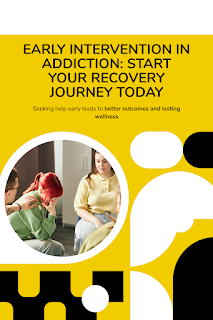Addressing addiction requires significant attention, particularly when it comes to ensuring long-term wellness for individuals struggling with substance use issues. Early intervention plays an important role in helping addicted individuals navigate their path toward a healthier life. Identifying the warning signs and tackling them swiftly can significantly alter the trajectory of one’s life. The ramifications of delaying treatment can lead to severe repercussions for the individuals involved and for their families and communities. This article explores the importance of early intervention, the obstacles faced, and the strategies that promote effective healing.
The Importance of Timely Support
Early intervention in addiction serves as the critical first step toward healing. Providing timely support can lead to improved outcomes, as it is often more effective when addressing addiction at its initial stages. Research indicates that the sooner an individual receives help, the better their chances of overcoming the challenges associated with addiction. This includes physical withdrawal and psychological and emotional aspects of dependency. Early responses help minimize the severity of these challenges.
Addiction develops subtly, making it difficult for individuals and their loved ones to recognize the issue. Early warning signs such as increased secrecy, changes in behavior, or deterioration in physical health should raise alarms. When intervention occurs during these formative stages, there is a higher likelihood of establishing healthier habits that can prevent the escalation of addictive behaviors. Addressing issues early helps individuals reclaim control over their lives and choices, stopping the tide of addiction before it becomes entrenched.
The Role of Professional Help
The experience of professionals is important when it comes to early intervention in addiction. Opting for trained recovery specialists allows individuals to receive treatment while gaining support for the psychological aspects of addiction, ultimately improving their chances of healing. These specialists can work with individuals to develop coping strategies and healthy habits.
Engaging professionals ensures that individuals receive a complete plan that may include counseling, medical support, and holistic approaches. This combination addresses the deeper causes of addiction and gives individuals the tools to succeed in healing. Early professional intervention helps build the foundation for long-term progress.
Educational Approaches to Intervention
Education about addiction is an important component in facilitating early intervention. Awareness campaigns can inform individuals and their families about the signs and consequences of addiction. Understanding the triggers and risk factors is important for recognizing when professional help is needed. Workshops, seminars, and community programs can serve as helpful resources for educating the public on the nuances of addiction.
Training for community members and healthcare providers can improve recognition and intervention strategies within various settings. Addiction therapists must stay informed about the latest research and methodologies to engage effectively with those in need. Equipped with this knowledge, they can offer appropriate resources and guidance. Early educational outreach fosters a culture of openness and support, allowing individuals to feel comfortable seeking help.
Creating a Strong Support Network
The role of a support network is very important in the journey of healing. When individuals struggle with addiction, they often feel isolated, believing no one understands their plight. Early intervention encourages the formation of strong support systems comprising family members, friends, and professionals. These networks provide the emotional and psychological support needed for healing.
Peer support groups such as Narcotics Anonymous and Alcoholics Anonymous offer valuable environments where individuals can share their experiences and struggles. This sense of community fosters belonging and reduces feelings of isolation. Including addiction therapists in these support systems can increase the effectiveness of intervention strategies. When individuals see that they are not alone and that others are willing to help, the chances of successful healing increase dramatically.
Long-Term Health Implications
Failure to address addiction early can lead to serious long-term health effects, including chronic diseases, mental health disorders, and social problems. Many individuals who battle addiction face physical deterioration that can result in life-threatening conditions. Untreated addiction can lead to a decline in mental health, worsening issues like depression and anxiety.
Studies show that individuals who receive timely treatment for addiction show improved physical health and experience better social outcomes. They tend to engage more positively within their communities and maintain healthier relationships. Commitment to early intervention strengthens the overall health of individuals and reduces the burden on healthcare systems.
Challenges to Early Detection
Despite the benefits of early intervention, several challenges can prevent effective detection and response. Stigma around addiction remains one of the most serious barriers, often preventing individuals from seeking help. People may feel ashamed or afraid of being labelled, which can lead to denial and prolonged suffering.
Access to resources is another factor in the success of early intervention. In many communities, especially marginalised ones, mental health and addiction treatment resources may be limited. Overcoming these obstacles requires a collective effort to reduce stigma and expand access to educational programs and healthcare services.
Early intervention in addiction plays an important role in improving the chances of long-term wellness. By addressing addiction in its beginning stages, individuals can avoid many of the serious effects linked to long-term substance use. Educational efforts, strong support systems, and access to professional care can close the gaps that often delay intervention. Recognizing the signs of addiction and responding promptly can change lives and support healthier communities.
















No comments